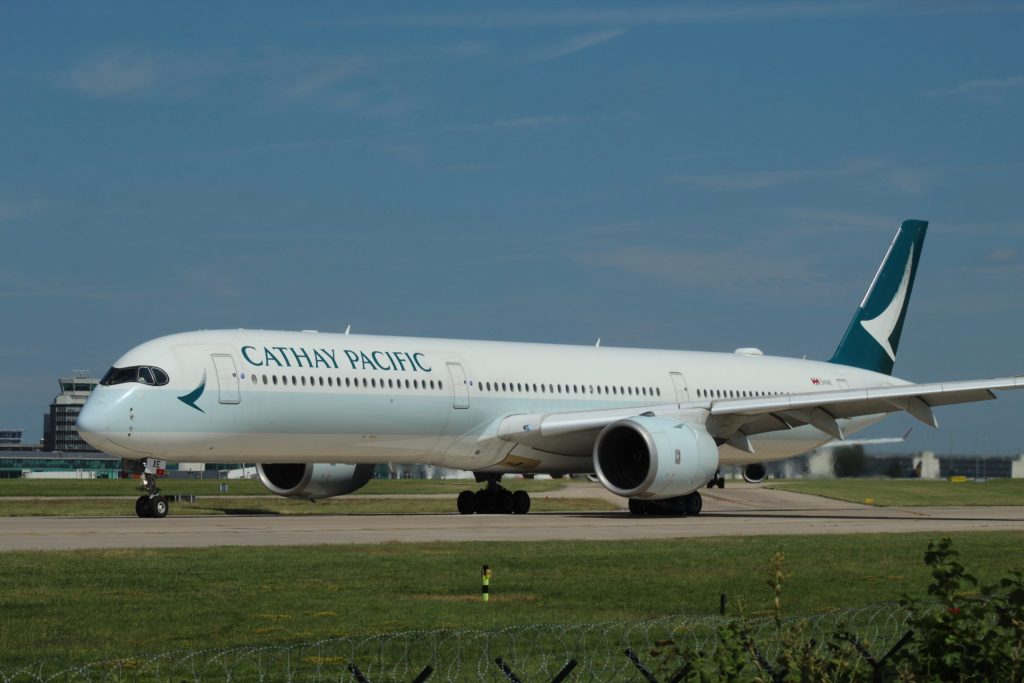Cathay Pacific grounds planes after engine problem
2 min read

Hong Kong’s premier airline, Cathay Pacific, has been forced to cancel numerous flights following a serious engine malfunction. The problem arose when a flight from Hong Kong to Zurich had to return shortly after takeoff due to an “engine component failure.”
An inspection of Cathay Pacific’s fleet revealed that 15 out of its 48 Airbus A350 aircraft had defective engine parts. These planes are equipped with Trent XWB-97 engines, manufactured by the renowned British engineering firm Rolls-Royce.
Since Monday, nearly 70 flights have been canceled, affecting routes between Hong Kong and major cities such as Sydney, Singapore, Bangkok, Tokyo, Seoul, and Taipei. The airline has indicated that disruptions will persist until at least Saturday.
Cathay Pacific reassured passengers with a statement emphasizing their commitment to safety. “At Cathay, the safety of our customers and our people guides every decision we make,” the airline said. “We sincerely apologize for the inconvenience caused and appreciate our customers’ patience and understanding.”
The European Union Aviation Safety Agency (EASA) has stated that it is closely monitoring the situation. “We are keeping track of the technical investigation and will take appropriate actions if necessary,” an EASA spokesperson said.
Airbus, which has been approached for comment, has yet to respond. Cathay Pacific’s Airbus A350s, which entered service with the airline in 2016, are known for their fuel efficiency, largely attributed to the Rolls-Royce engines.
Rolls-Royce has pledged to support both Cathay Pacific and other airlines using the Trent XWB-97 engines. In a statement, the company said, “We are committed to working closely with the airline, aircraft manufacturer, and relevant authorities to assist in resolving the issue.” Rolls-Royce also plans to keep other operators of the Trent XWB-97 informed about any pertinent updates.
Several other airlines operate the Airbus A350, including British Airways, Virgin Atlantic, Qatar Airways, Singapore Airlines, and Japan Airlines. Japan Airlines mentioned that it is “reviewing the situation with Rolls-Royce” and will take appropriate measures based on the findings. Qatar Airways has reported no immediate impact on its Airbus A350-1000 operations but will continue to monitor the situation closely.
Rolls-Royce had recently announced significant investments to enhance its range of engines, including the Trent XWB-97. However, concerns about the engine’s durability and the associated maintenance costs have been voiced by industry figures, such as Tim Clark, president of Emirates, earlier this year.
As the investigation continues and the impact of the engine issues unfolds, passengers and airlines alike are left waiting for further developments and resolutions.